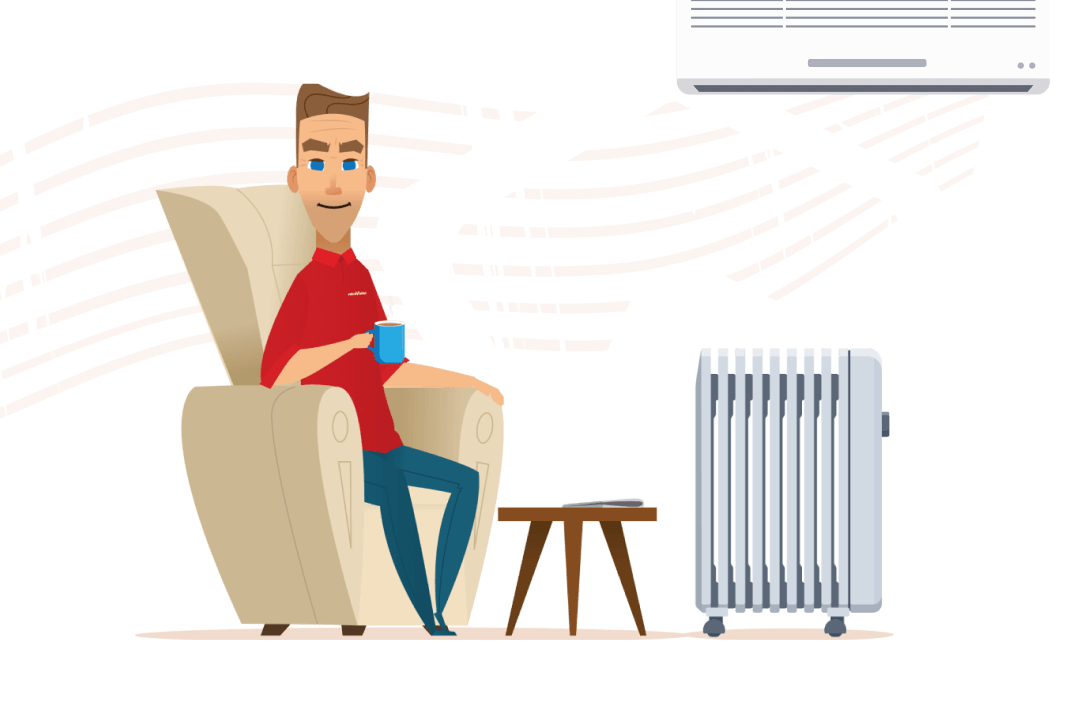Shop Heaters on Sale!
Retravision is the best choice for Heaters on sale! Stay warm with our range of Ceramic, Column, Convection, Fan, and Gas Heaters, plus Electric Blankets for extra comfort. Shop now for the best deals online or in-store!

Heater Buying Guide
Check out our handy Heater Buying Guide, with all the best tips and advice plus all the latest products from leading brands!
Learn moreFAQs
Heaters are usually considered to be very safe for your health, and will keep the winter chill away but for some people with allergies, respiratory issues and sensitive skin, heaters can cause problems. Heaters remove moisture from the air which can cause skin to feel dry and may lead to itchiness or a rash. It can also dry out the nasal passages which can cause nose bleeds. For some people, fans or convection settings can cause trouble for those who have allergies or asthma but for the most part they are very safe. It is important to remember that they get hot! It’s always essential to exercise caution to avoid the risk of burns. Those with gas heaters will want to make sure they are serviced regularly and ventilated properly. Leaking gas or poorly ventilated rooms can be a serious danger to your health. As long as you follow the correct safety directions of your heating unit, you’ll find they are very safe.
Oil filled heaters can be very cheap to run in smaller spaces, like bedrooms. They are designed to use full power when first switched on, but will switch off their heating element once the space around them has warmed up. In a space like a bedroom, they can be very cost-effective and keep the temperature at a warm, consistent level.
Split-systems are generally considered to be the cheapest type of electric heater to run, although that will depend on factors like the size of your unit, its energy efficiency rating, the temperature you set it to, how long you operate it for and the electricity tariffs you are subject to.
Oil heaters are relatively simple - they use a heating element to heat oil which warms and radiates heat around a room. They can be quite energy efficient in the right settings, but are known to consume more energy than other types of electric heaters, like split-systems. Most oil column heaters will be around 1500 watts, although some come with low energy settings. Whilst they are heating and the heating element is in use, they will consume energy. As the temperature climbs and gets warmer, the element will switch off. In a cold, drafty room, the temperature may fall more quickly and the thermostat in the heater will tell the element to switch back on in order to heat up the room - this will consume a lot more energy. To keep energy bills to a minimum, they are best used in smaller rooms where there is less air movement.
The best heaters for large, open spaces are those that are powerful enough to distribute heat evenly across the space. That means you’ll want to consider either a gas heater or a split-system air conditioner. Gas heaters are well known for their powerful radiant ability and can cover even more space when paired with a fan to help spread heat across the room. Split-system air conditioning is designed to blow hot air into a room and so they’re great for an open plan layout. Another option for smaller living areas is electric flame heaters which look like a fireplace and can bring a warm atmosphere to a space.
The best heaters for bedrooms are often said to be oil column heaters. They’re compact, quiet and affordable and great for retaining heat and keeping a room warm for many hours. Alternatively a quiet fan heater, panel heater or ceramic heater can also be a great option for a bedroom space.
Gas and reverse cycle heaters are usually the cheapest (and most energy efficient) systems to use in the long run. Split-systems are capable of evenly distributing air evenly throughout spaces large and small and have the added benefit of cooling in the summer. Gas heaters will use your gas connection to heat up and can help you save on energy costs.
Gas and split-system air conditioners are generally considered to have the cheapest running costs. Gas heaters usually require little to no electricity and run on natural or LPG gas. Split-system air conditioners are the most energy efficient type of electric heater and many with higher star ratings will have cheaper running costs than their gas counterparts.





